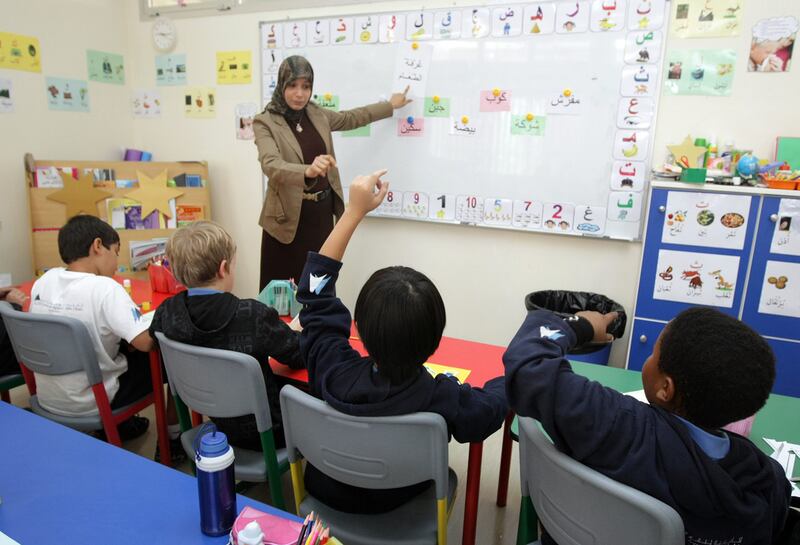Education is attracting the attention of global investors, but some may be reluctant to go back to school without a strong incentive.
Gems Education, the largest private schools operator in the region, had to pay a 12 per cent coupon on its $200 million perpetual sukuk this month — after initially planning to raise as much as $500m, Reuters reported last month.
Nick Guest, the chief financial officer, said the company was never targeting $500 million and was happy with the result.
“We are comfortable with the bond. We are the first corporate issuer outside of a government backed entity — that is not rated — to issue a Sukuk international market since 2008. We believe this is a positive for the region,” Mr Guest said.
A perpetual bond is a debt issue with no maturity date.
A report from Bank of America Merrill Lynch released yesterday highlights the global opportunity being presented by education as “a once-in-a-generation investment opportunity to build healthy, prosperous and equitable societies, with every dollar invested in education generating US$10 to $15 in economic returns”.
The bank picked 40 stocks that could benefit from rising spending on education and increased private sector involvement. It also highlights the shift from public sector education towards for-profit schools as state education struggles to keep pace with demand.
But the pricing of the debut Islamic bond sale from Gems suggest investors may still be learning about education as an investment.
“The instrument is deeply subordinated and has no maturity date, while Gems retains significant flexibility with the coupon payment and use of the sukuk’s proceeds,” said Ghassan Chehayeb, a Dubai-based analyst at Exotix, a brokerage that specialises in illiquid debt.
The school company recently struck two sale and leaseback deals involving Dubai campuses and Exotix expects to see more such sales or other types of financing as it seeks to build 21 schools around the world over the next three years and to expand capacity at another 10 existing institutions.
Other challenges include Gems not yet being covered by ratings agencies an absence of the operator’s peers in the region to benchmark the sukuk, “which is why they had less demand and was more expensive”, Mr Chehayeb said.
Concerns were also raised over the amount of bank debt held by the company’s founding family, the Varkey family, which it says equates to 78 per cent of the company’s total equity.
In the event of non-payment, Gems would have to take significant impairment, which could eliminate a significant portion of its equity and possibly inhibit its ability to raise funds in the future.
The structure also permits up to 70 per cent of the sukuk proceeds to be channelled directly to Gems’ parent company, controlled by the Varkey family, which could be used as an income dividend instead of paying down debt or expansion, Exotix says.
Gems has sold the long leasehold interest on two properties, one to Emirates Reit, and the other to PineBridge Investments, which was regarded as a positive among investors that the company sought to unlock value in its balance sheet.
Gems said it would continue to operate and manage the property and there would be no impact on school operations.
In the past decade, sale-and-leaseback deals became popular as companies sought to realise value from their property assets to reinvest in their businesses.
But the funding model came in for criticism following the Southern Cross Healthcare crisis in Britain in 2011.
At the time, thousands of elderly Britons were facing eviction after the country’s biggest nursing homes operator undertook a sale-and-leaseback of hundreds of its care homes but became unable to pay its rental obligations.
In the Arabian Gulf, sale and leaseback deals have been rare, as businesses have typically preferred to retain ownership of their buildings.
halsayegh@thenational.ae





